- Details
- Category: Senator Mary Edly-Allen News
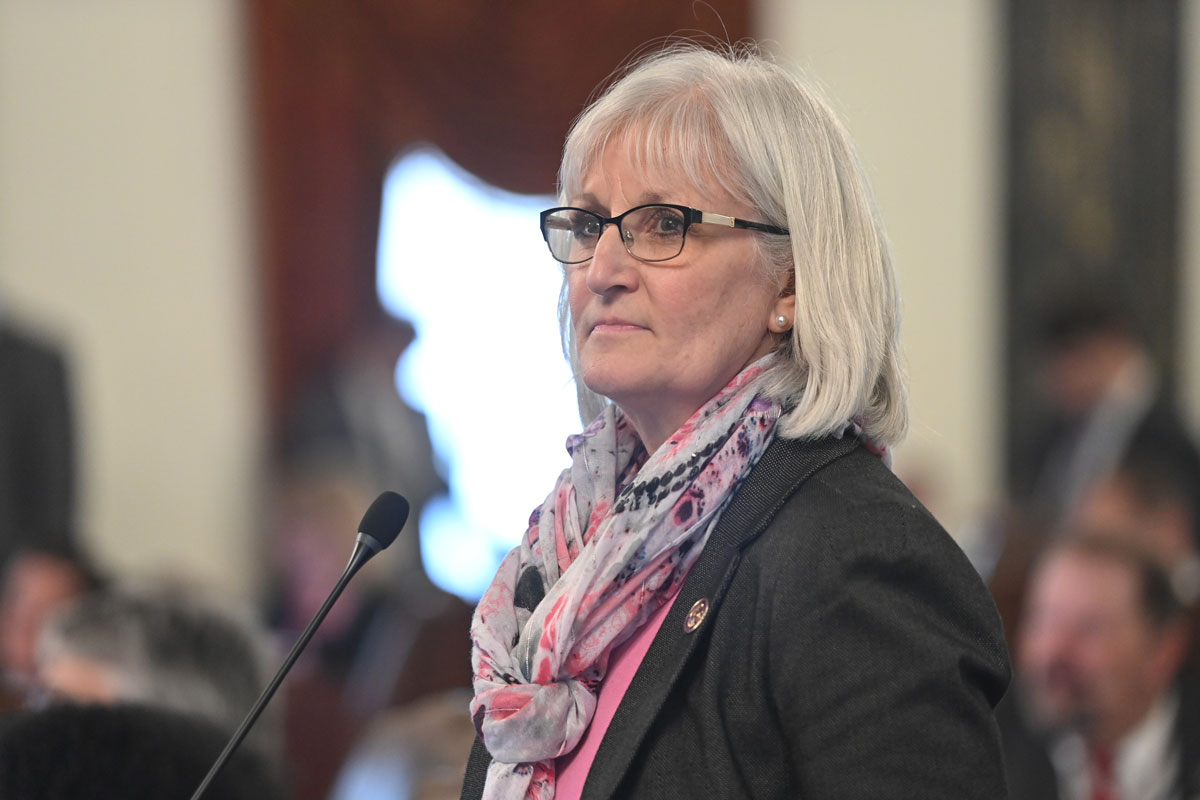 SPRINGFIELD – To unify the policies and procedures in jails and prisons in Illinois keeping new and expectant mothers safe. State Senator Mary Edly-Allen worked alongside the Women’s Justice Institute (WJII) to introduce a new law, HB5431, providing comprehensive protections for committed pregnant people, including banning the use of restraints. As the number of incarcerated pregnant women has increased over the years, many of these pregnancies have been left without adequate support.
SPRINGFIELD – To unify the policies and procedures in jails and prisons in Illinois keeping new and expectant mothers safe. State Senator Mary Edly-Allen worked alongside the Women’s Justice Institute (WJII) to introduce a new law, HB5431, providing comprehensive protections for committed pregnant people, including banning the use of restraints. As the number of incarcerated pregnant women has increased over the years, many of these pregnancies have been left without adequate support.
“This law aligns every jail and prison in Illinois to have safe policies and procedures when it comes to pregnant and postpartum incarcerated individuals,” said Edly-Allen (D-Libertyville). “I am proud to see Illinois strengthen protections and ensure these policies are equitably and humanly applied under this law.”
Read more: Edly-Allen law to protect incarcerated pregnant individuals
- Details
- Category: Senator Celina Villanueva News
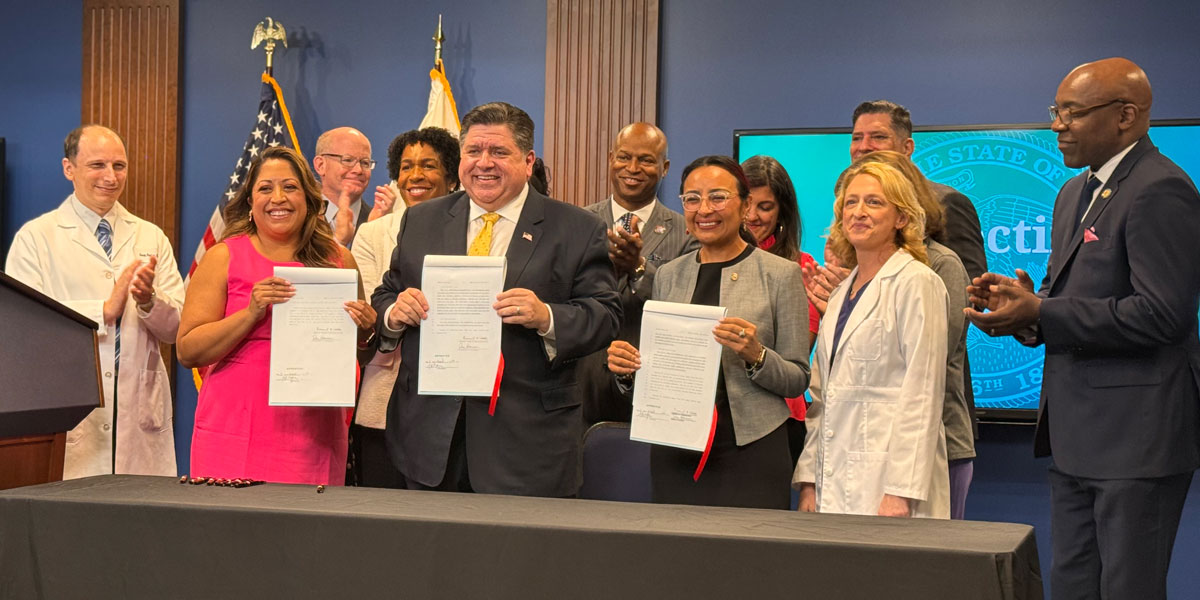 SPRINGFIELD — New laws from State Senator Celina Villanueva continue to support reproductive health care and ensure health care records are not being improperly disclosed.
SPRINGFIELD — New laws from State Senator Celina Villanueva continue to support reproductive health care and ensure health care records are not being improperly disclosed.
“As we navigate the war on reproductive rights, preventative laws like this are essential in counteracting restrictive and overarching laws of other states,” said Villanueva (D-Chicago). “As a safe haven state, it is our responsibility to reinforce state-level protections where federal protections have failed us.”
Last year Villanueva led House Bill 4664 – a law to shield out-of-state patients and in-state providers from legal action originating from other states regarding abortions performed here. To expand upon that measure and provide further protections, Villanueva championed House Bill 5239 this year.
Read more: Villanueva law safeguards and upholds reproductive rights
- Details
- Category: Senator Steve Stadelman News
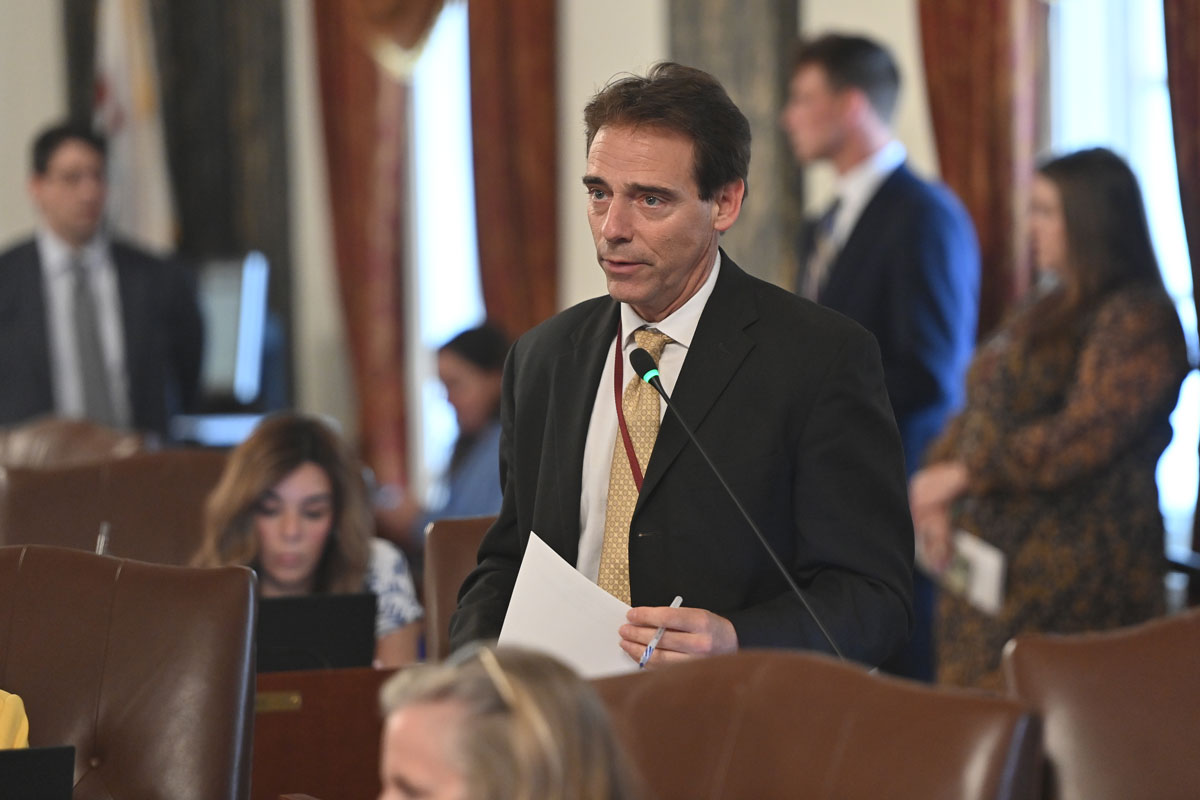
SPRINGFIELD – Victims of hazing will have new and strengthened protections thanks to State Senator Steve Stadelman.
“Today marks a pivotal moment in our ongoing efforts to support and protect victims of crime,” said Stadelman (D-Rockford). “We are sending a clear message that consent obtained through duress, manipulation or an abuse of power will not be tolerated as a defense in our justice system. This law ensures that perpetrators cannot escape accountability by exploiting their victims.”
Stadelman’s new law mandates that consent from a victim does not absolve perpetrators from prosecution. This significant legislative change aims to reinforce the protections afforded to victims of crime and ensure justice is served.
“This legislation is about justice and fairness,” said Stadelman. “It acknowledges the complex dynamics at play in many criminal cases, especially those involving vulnerable populations. No one should feel powerless in the face of their abuser, and this law helps ensure that victims have the support and protection they deserve.”
Senate Bill 2934 was signed into law Friday and goes into effect Jan. 1, 2025.
- Details
- Category: Senator Suzy Glowiak Hilton News
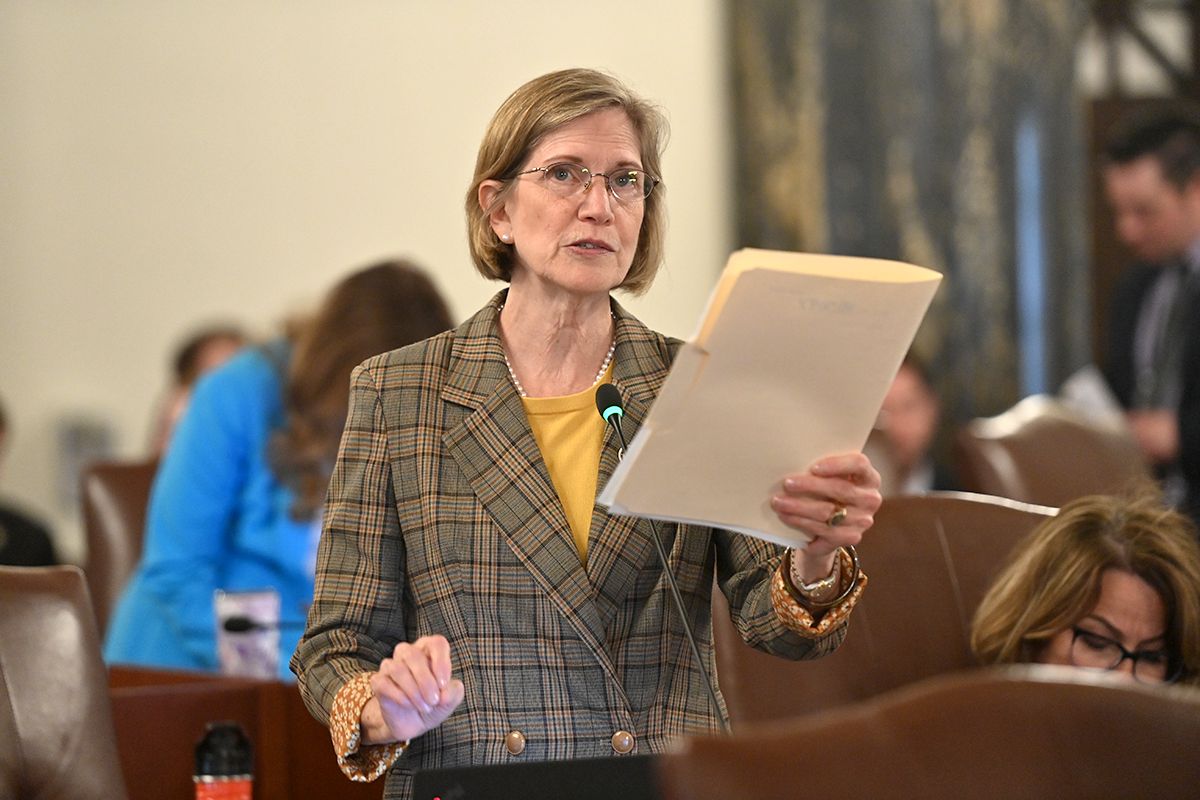
SPRINGFIELD – In order to make medication more accessible to Illinoisans, State Senator Suzy Glowiak Hilton’s new law prohibits pharmacists from refusing to fill a written prescription.
“Pharmacies must accept doctors’ prescriptions for approved medication regardless of how the prescription is sent to them,” said Glowiak Hilton (D-Western Springs). “Every Illinoisan deserves the right to their medication when they need it.”
In response to the opioid epidemic, Illinois passed a law in 2021 requiring prescriptions of controlled substance to be sent electronically. However, some pharmacists have been refusing to fill non-electronic prescriptions despite exceptions under the law. Glowiak Hilton’s new measure will clarify this process by prohibiting pharmacists from refusing to fill paper or non-electronic prescriptions.
“Denying someone of their medication could have serious medical consequences,” said Glowiak Hilton. “These are unnecessary barriers that must be addressed in our pharmacies to prevent potential harm.”
House Bill 4874 was signed into law Friday and takes effect immediately.
- Details
- Category: Senator Omar Aquino News
 SPRINGFIELD – A plan sponsored by State Senator Omar Aquino to provide direct services and residency opportunities to international medical graduate physicians was signed into law Friday.
SPRINGFIELD – A plan sponsored by State Senator Omar Aquino to provide direct services and residency opportunities to international medical graduate physicians was signed into law Friday.
“The global pandemic exacerbated existing challenges for our health care industry, and right now we’re leaving talent on the table as we continue to face a shortage of providers across the nation,” said Aquino (D-Chicago). “Dedicating resources to help support immigrant inclusion in the professional sector while opening pathways for licensure will go a long way toward ensuring patients can get the care they need.”
Read more: Aquino opens pathways for internationally trained medical professionals
- Details
- Category: Senator Robert Martwick News
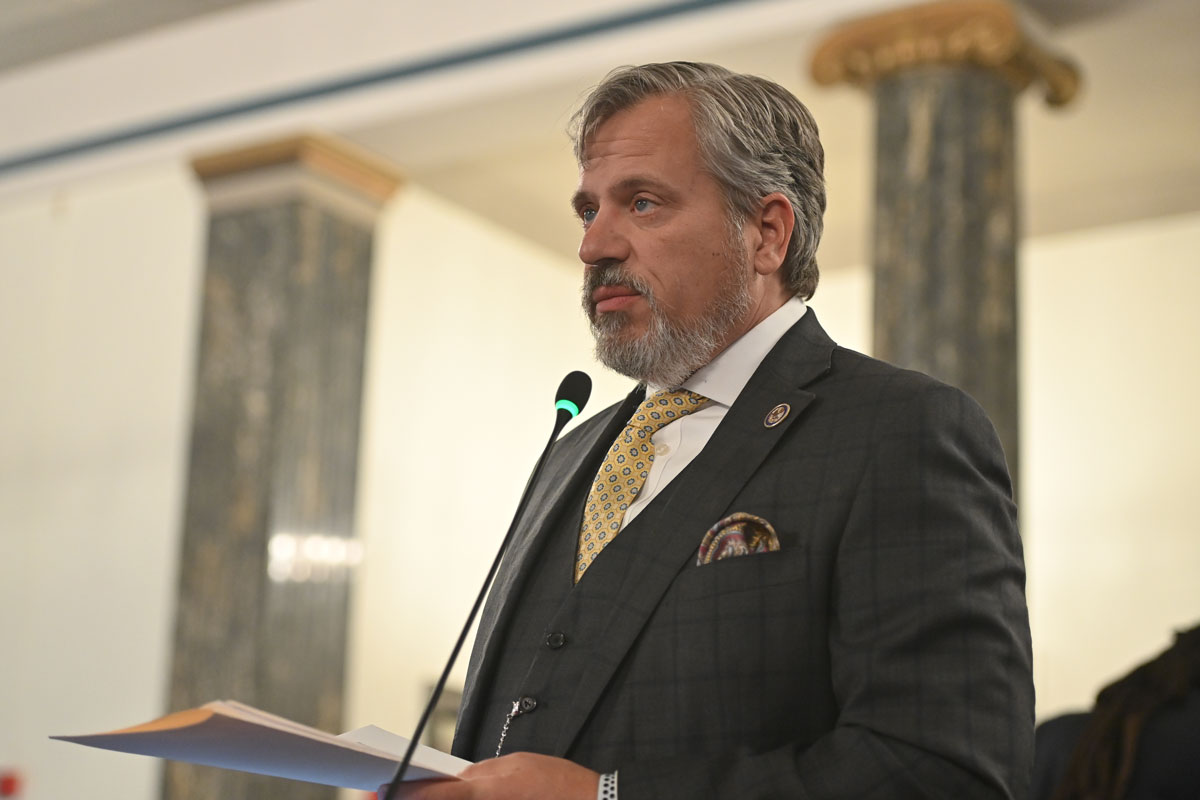 SPRINGFIELD — Chicago homeowners who pay into home equity assurance programs will soon be able to use their tax dollars to protect their home from flooding, thanks to a new law led by State Senator Robert Martwick.
SPRINGFIELD — Chicago homeowners who pay into home equity assurance programs will soon be able to use their tax dollars to protect their home from flooding, thanks to a new law led by State Senator Robert Martwick.
“Flooding in Chicago has been getting worse each year, posing a significant threat to homeowners, especially when their insurance won’t cover the steep costs associated with restoration after a flood,” said Martwick (D-Chicago). “Allowing home equity assurance programs to provide financial relief is a crucial step in terms of giving back to the communities that they serve.”
Read more: Chicago homeowners to see additional flood repair assistance thanks to Martwick law
- Details
- Category: Senator Dave Koehler News
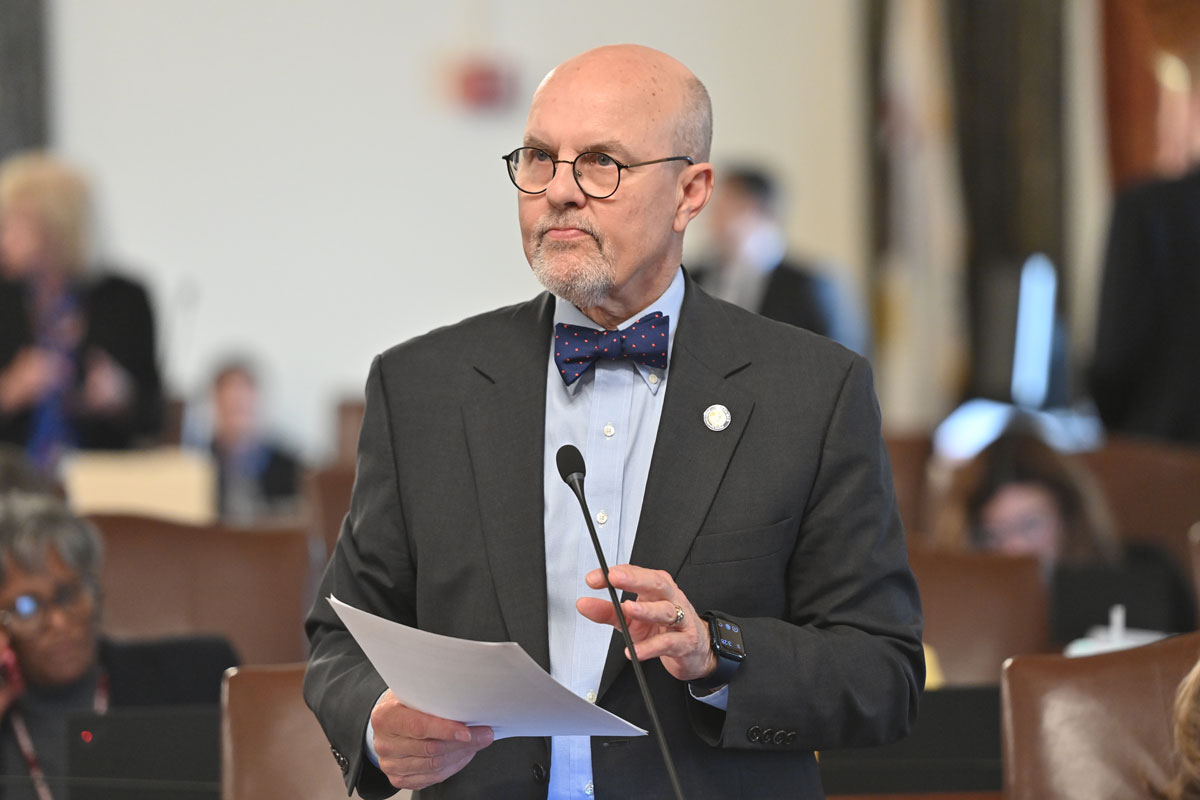 SPRINGFIELD – A majority of food on grocery store shelves is purchased out of state, which has led State Senator Dave Koehler to pass a law to make Illinois food more readily available on local store shelves.
SPRINGFIELD – A majority of food on grocery store shelves is purchased out of state, which has led State Senator Dave Koehler to pass a law to make Illinois food more readily available on local store shelves.
“Our farmers play a significant role in our economy, and we should make every effort to have their produce in stores across our communities,” said Koehler (D-Peoria). “This law supports our family farmers and gives residents access to fresh local produce.”
Koehler’s law directs the Illinois Department of Agriculture to amplify local food processing, collection and distribution within the state through grants. Eligible applicants include farms, co-ops, process facilities, food businesses and hubs with fewer than 50 employees, as well as Illinois nonprofit organizations and local governments.
Read more: More Illinois-grown food coming to stores thanks to Koehler law
- Details
- Category: Senator Mike Porfirio News
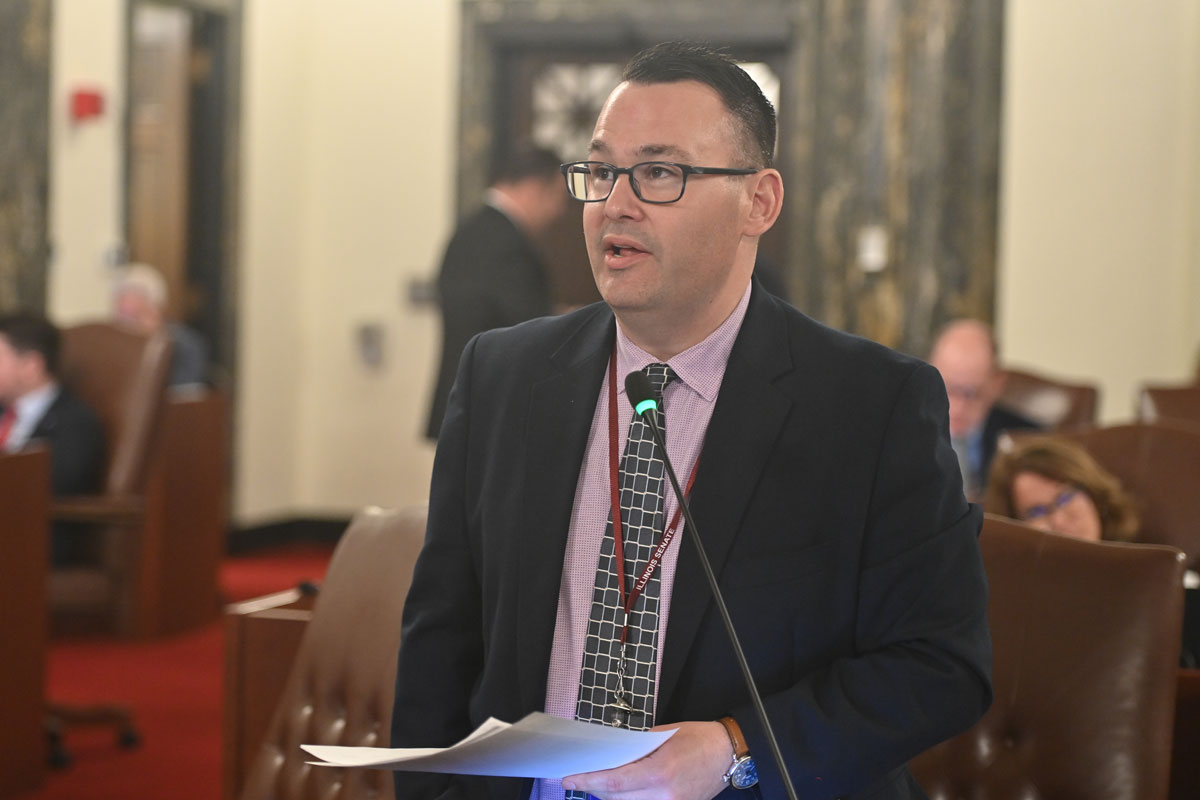 SPRINGFIELD – To protect our nation’s veterans from predatory business practices, State Senator Mike Porfirio and State Representative Stephanie Kifowit championed a new law combating businesses using deceptive practices to target veterans and their benefits.
SPRINGFIELD – To protect our nation’s veterans from predatory business practices, State Senator Mike Porfirio and State Representative Stephanie Kifowit championed a new law combating businesses using deceptive practices to target veterans and their benefits.
“Our veterans are true American heroes and they deserve to have protections in all facets of their lives, especially when it comes to their hard-earned benefits,” said Porfirio (D-Lyons Township), a U.S. Navy veteran. “By protecting our veterans from exploitation, we’re making certain they have the support and respect they deserve and taking a crucial step forward in honoring their dedicated service.”
More Articles …
Page 93 of 769













 © 2026 Illinois Senate Democratic Caucus
© 2026 Illinois Senate Democratic Caucus